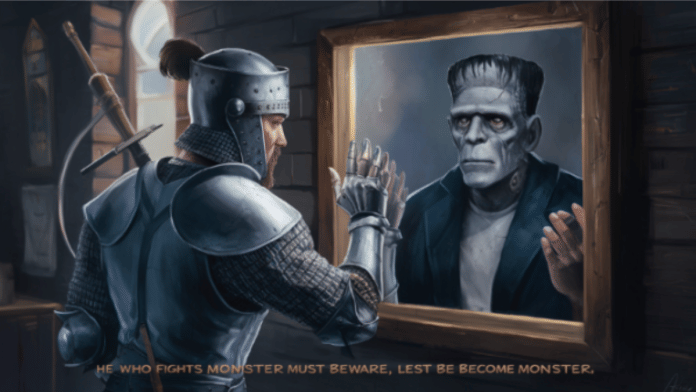Thank you dear subscribers, we are overwhelmed with your response.
Your Turn is a unique section from ThePrint featuring points of view from its subscribers. If you are a subscriber, have a point of view, please send it to us. If not, do subscribe here: https://theprint.in/subscribe/
The Circle of Public Opinion
“You either die a hero or live long enough to see yourself become a villain.”
Forget theatrics. The line from the 2008 Hollywood blockbuster, The Dark Knight is loaded with real world wisdom. Even Harvey Dent (Aaron Eckhart), the hero who voices these prophetic words in the movie, eventually turns bad.
Has there been a Russian ruler more popular than Vladimir Putin in 2014 after grabbing Crimea? Joseph Stalin, perhaps, after leading the Soviet Union to victory in the Second World War. A beacon of resurgent Russian power and prosperity after he pulled this former superpower out of untold humiliation in the 1990s, Putin’s decision to step down in 2008, honouring the constitutional term limits, was lauded both domestically and internationally. Fast forward to today, and Putin’s extended grip on power has seen him transform into an autocrat, with widespread accusations of election manipulation, suppression of dissent, and a sharp decline in popularity.
Rings a bell with Sheikh Hasina’s inglorious departure from Bangladesh?
The narrative is not unique, but a recurring theme among many once-popular leaders who overstayed their welcome. With exceptions, of course!
Extended Power Corrupts Extensively?
“Nothing so un-became him as the manner of his going.”
William Shakespeare, Macbeth (paraphrased)
Robert Mugabe was celebrated as a liberator when he led Zimbabwe to independence in 1980. However, his nearly four-decade rule saw the country plunge into economic ruin, marked by hyperinflation, corruption, and human rights abuses. His fall from grace culminated in a military coup in 2017, highlighting the tragic trajectory.
Hosni Mubarak initially brought stability to Egypt following Anwar Sadat’s assassination in 1981. Over his 30-year rule, economic stagnation, corruption, and oppressive policies led to widespread discontent. The Arab Spring uprising in 2011 forced Mubarak to resign, ending his reign on a note of ignominy.
Sheikh Hasina is the daughter of Sheikh Mujibur Rehman, the liberator of Bangladesh, and was once a staunch democrat. Underline “once.” Recent turmoil in Bangladesh that forced her to flee the country suggest otherwise. This was the fourth consecutive stint for this five-time Prime Minister. Authoritarian tendencies were on the rise. So were allegations of human rights violations and electoral fraud.
Pride, Prejudice & Fall from Grace
So what turns the tide?
Louis IV’s boastful “I am the state,” and Jim Carville’s “It’s the economy stupid,” offer clues.
Long tenures disconnect leaders from the people’s everyday struggles and aspirations. Economic mismanagement through corruption and cronyism leads to impoverishment, unemployment, and loss of public support. (To her credit, Sheikh Hasina handled the economy reasonably.)
By now, however, they are drunk with power and arrogance. They believe in the mirage of their permanence. Frowning upon even genuine dissent as a conspiracy of lesser beings. What follows is mix of repression, political manipulation, erosion of institutions, and human rights abuses. This adds fuel to the already raging fire of unfulfilled promises.
Declining economy is a ruler killer. Bipan Chandra et al. depict how economic stagnation and mounting inequality trigger fierce competition for jobs and business. People gang up along caste, religious, or ethnic lines to lobby for livelihood. The roots of multiple early-20th century conflicts lie in economic mishandling: Communalism in India, Catholic-Protestant strife in Northern Ireland, Christian-Muslim clashes in Lebanon, anti-Semitism, and Fascism.
Bucking the Trend
Nelson Mandela wasn’t in power for long. Because he chose not to cling to it. Stepping down as South Africa’s first black President after just one term (1994-99), he set a standard that reinforced faith in the nation’s infant democratic institutions. This despite his immense popularity as someone instrumental in peacefully ending decades of white supremacy! Robert Mugabe could have learned something from his next door neighbour.
Lee Kuan Yew transformed Singapore into a thriving global hub. Throughout his long stint from 1959 to 1990, the founder Prime Minister delivered robust, corruption-free governance. Most importantly, he ensured a smooth power transition.
Fidel Castro led Cuba between 1959 and 2008. One might say communist states can control people more easily. Especially, with an omnipresent external threat (read: United States) available for unifying people internally. But then, uprisings against totalitarian regimes are equally vigorous. Remember those in former communist countries around 1991 when the Soviet Union collapsed? That Cuba didn’t suffer the same fate speaks something about Castro’s governance. The “survivor of 11 U.S. presidents and countless CIA assassination attempts,” also triumphed natural anti-incumbency. And handed power smoothly . . . to his brother though.
Historical Wisdom
There’s a tale of caution in here. And one of hope. The very qualities that catapult leaders to power – charisma, decisiveness, vision – must evolve into humility, openness, and responsiveness to maintain legitimacy.
This way, heroes can have their cake, and eat it too for long – without turning into villains.
These pieces are being published as they have been received – they have not been edited/fact-checked by ThePrint


